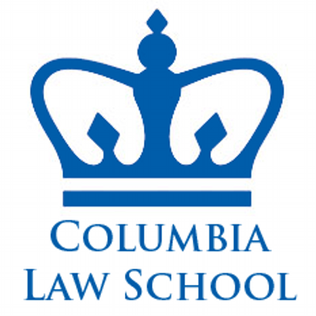
Empowering Women in Peace Processes
Columbia Law School and the United Nations Institute for Training and Research (UNITAR) are pleased to announce the third series of workshops on Con ict Resolution, Mediation and Negotiation.
The workshops will deliver the most rigorous, intellectually engaging, interactive, custom programming for United Nations diplomats. Our individual day-long courses will leverage Columbia’s unparalleled strength in the area of con ict resolution, weaving it in with skills building programming that acknowledges the 2030 Agenda and Sustainable Development Goals.
The programs are designed for delegates at any level who wish to achieve mastery of negotiation, mediation and multilateral con ict resolution processes, and implement them toward solving the world’s most dif cult problems.
At the end of this series, participants who attended all 3 courses will receive a special certi cate signed by the Dean of Columbia Law School, and UNITAR’s Executive Director and Assistant Secretary General Mr. Nikhil Seth.
In this session we will focus on empowering women in the peace process. There is a large body of evidence attesting to the benefits that women bring to peacemaking. Accordingly, as the U.N. has already recognized, truly optimal peacemaking processes are gender-inclusive at all levels and stages. Unfortunately, peace—much like war—has long been a male-dominated field, and women’s involvement in peacemaking processes has been marginal. Significant conceptual, structural, social, psychological, and practical barriers to women’s inclusion have therefore developed over time, and continue to prevent beneficial gender inclusiveness in peacemaking. But the U.N. is making meaningful strides to overcome these long-standing obstacles and increase women’s inclusion in peace processes (SDG 5.1). Recent conscious efforts to increase women’s participation have been successful not only in taking major steps towards gender balancing the peacemaking process, but also in increasing the effectiveness of agreements reached through the process. Nevertheless, increased inclusion is only half the battle. To optimize improvements in peacemaking processes, women must feel empowered to fully participate in those processes; it is not enough for women to play lesser, more passive roles than their male counterparts.
In order to ensure that women meaningfully engage in peacemaking processes, we must recognize—and then strategically and actively counter—barriers to their inclusion. Fundamentally speaking, we must empower women to ensure that the UN (and other organizations) receive the benefits of their perspectives.
This session aims to provide tools and guidance to ensure that the increase in women’s numerical participation in the peace process is matched by corresponding empowerment of women and their role in the peace process (SDG 5.1, 5.5, 5.6). First, this session will survey data on women’s current involvement in various peace processes—such as formalized international dispute resolution, treaty drafting, treaty ratification, and general conflict de-escalation. Then, the session will examine some exceptional cases of high-profile involvement of women in peace process, with the pedagogical aim being to distill common barriers and positive effects of high involvement of both genders at the peace table. Finally, we will create a safe space for the UN participants to examine their own experience in light of the research and cases that we discuss. How have the participants’ own professional experiences been colored by instances of gender inequality?
UN Ground Passes are required for this event

